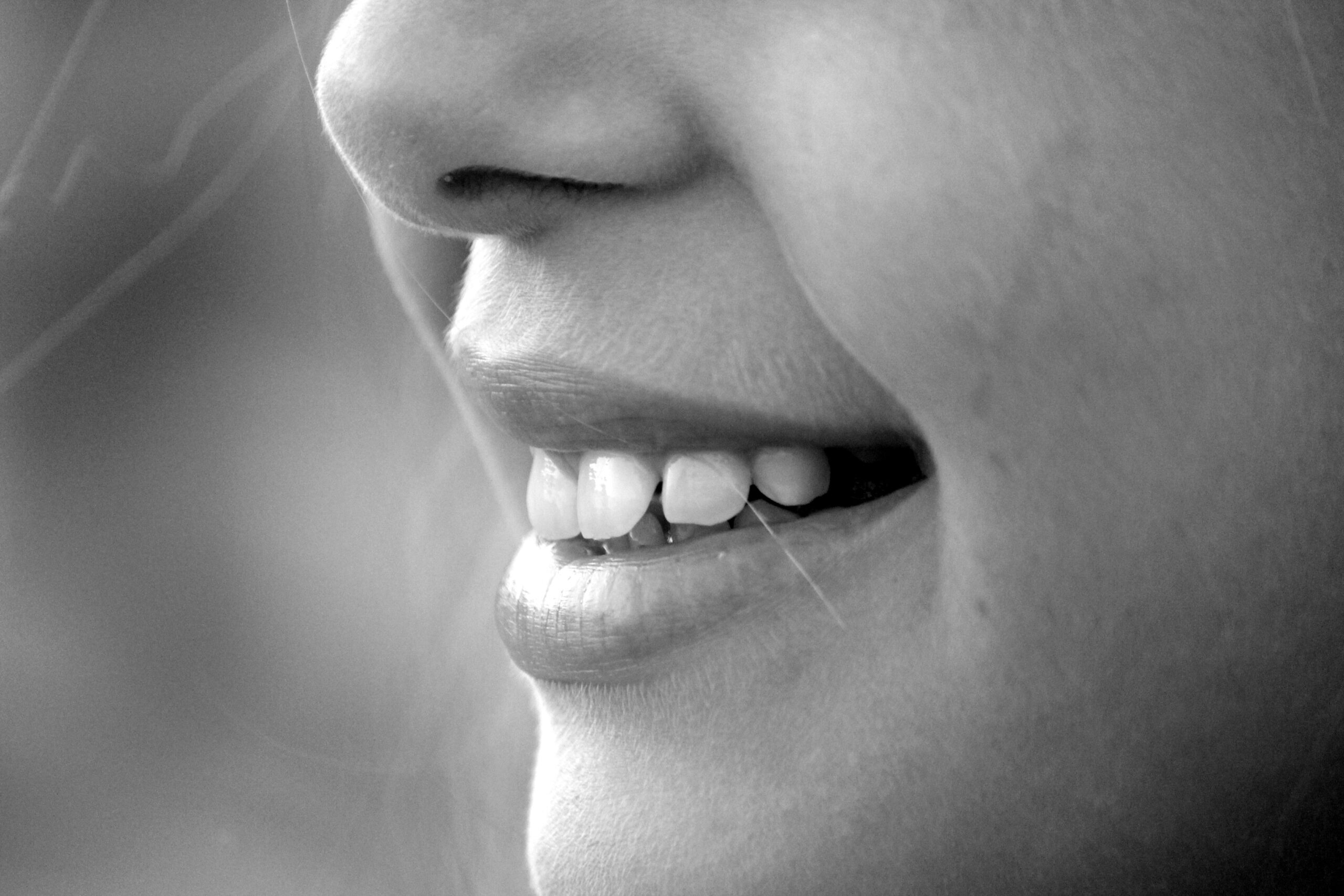
Why is The Roof of My Mouth Yellow?
Yellow spots on the roof of the mouth are most likely caused by oral thrush, which is an overgrowth of yeast or fungi in the mouth. Oral thrush can cause yellow patches and bumps, a burning mouth, cracked lips, and a lack of taste. Other possible causes of yellow spots on the roof of the mouth are jaundice, which is a build-up of bilirubin in the body, oral herpes, which is a viral infection that causes sores, pus, which is a sign of infection or abscess, and tobacco, which is a risk factor for poor oral hygiene and black hairy tongue. Poor oral hygiene can lead to a buildup of bacteria in the mouth. When these bacteria multiply, it can change the color of the inside of the mouth. This may cause the roof of your mouth and your tongue to turn yellow. Other common symptoms of poor oral hygiene are bad breath, swollen or bleeding gums, and pain while chewing. If you are experiencing any pain or bleeding in your mouth along with yellow spots on the roof of your mouth, it’s best to seek medical attention.
How can I prevent oral thrush?
Oral thrush can be prevented by maintaining good oral hygiene. Brush your teeth twice a day with a fluoride toothpaste, floss regularly, and rinse your mouth after meals. If you wear dentures, make sure to clean them regularly and remove them at night. Additionally, avoid smoking and limit your sugar intake as yeast thrives on sugar. If you have a weakened immune system or are taking antibiotics, it’s important to speak with your doctor about ways to prevent oral thrush.
What are the treatments for oral thrush?
The goal of any oral thrush treatment is to stop the rapid spread of the fungus, but the best approach may depend on your age, your overall health and the cause of the infection. If you are a healthy adult or child, your doctor may recommend antifungal medication or a liquid that you swish in your mouth and then swallow. If these topical medications are not effective, medication may be given that works throughout your body. If you are an infant or nursing mother, your doctor may prescribe a mild antifungal medication for your baby and an antifungal cream for your breasts. If you have a weakened immune system or are taking antibiotics, it’s important to speak with your doctor about ways to prevent oral thrush. Eliminating underlying causes, when possible, can prevent recurrence.
Mayo Clinic suggests that maintaining good oral hygiene can help prevent oral thrush. Brush your teeth twice a day with a fluoride toothpaste, floss regularly, and rinse your mouth after meals. If you wear dentures, make sure to clean them regularly and remove them at night. Additionally, avoid smoking and limit your sugar intake as yeast thrives on sugar.
Can oral thrush be contagious?
Oral thrush is not considered to be contagious in most cases. However, it can spread from one person to another among those who are at high risk, such as people with weakened immune systems, babies that breastfeed, or those who take certain medicines. The yeast can spread from person to person, but someone who comes into contact with thrush won’t automatically develop the infection.
If you are experiencing any symptoms of oral thrush or have yellow spots on the roof of your mouth, it’s best to seek medical attention.
What are the symptoms of oral thrush?
The symptoms of oral thrush include:
- Creamy white lesions on your tongue, inner cheeks, and sometimes on the roof of your mouth, gums and tonsils.
- Slightly raised lesions with a cottage cheese-like appearance.
- Redness, burning or soreness that may be severe enough to cause difficulty eating or swallowing.
- Slight bleeding if the lesions are rubbed or scraped.
- Cracking and redness at the corners of your mouth.
- A cottony feeling in your mouth.
- Loss of taste.
- In severe cases, usually related to cancer or a weakened immune system from HIV/AIDS, the lesions may spread downward into your esophagus — the long, muscular tube stretching from the back of your mouth to your stomach (Candida esophagitis).
If you are experiencing any of these symptoms, it’s best to seek medical attention. Your doctor can diagnose oral thrush by examining your mouth and throat. They may also take a small sample of the affected area for testing.
How long does it take for oral thrush to go away with treatment?
The duration of oral thrush treatment can vary depending on the severity of the infection and the underlying cause. The goal of any oral thrush treatment is to stop the rapid spread of the fungus.
For healthy adults and children, antifungal medication in the form of lozenges, tablets, or a liquid that you swish in your mouth and then swallow may be recommended by your doctor. If these topical medications are not effective, medication may be given that works throughout your body. The duration of treatment can range from 7 to 14 days.
If you are an infant or nursing mother, your doctor may prescribe a mild antifungal medication for your baby and an antifungal cream for your breasts.
If you have a weakened immune system or are taking antibiotics, it’s important to speak with your doctor about ways to prevent oral thrush. Eliminating underlying causes, when possible, can prevent recurrence.
Mayo Clinic suggests that maintaining good oral hygiene can help prevent oral thrush. Brush your teeth twice a day with a fluoride toothpaste, floss regularly, and rinse your mouth after meals. If you wear dentures, make sure to clean them regularly and remove them at night. Additionally, avoid smoking and limit your sugar intake as yeast thrives on sugar.
How can I tell if my baby has oral thrush?
Oral thrush in babies is an infection caused by a fungus that can appear as white or red spots or patches in the mouth, tongue, gums, cheeks, or throat. The spots may look like cottage cheese and may bleed if wiped. Oral thrush can make the baby’s mouth sore and cause trouble or pain with feeding, sucking, or nursing. The baby may also be fussy, irritable, or gassy. Oral thrush can also affect the baby’s skin and cause a diaper rash that does not go away with ointments. The mother may also have symptoms of thrush on her nipples or breasts, such as itching, cracking, or shooting pains.
White patches or spots usually develop in your baby’s mouth and on their tongue. The spots may join together to form larger spots called plaques. They may become yellow or grey and look slightly like cottage cheese. Your baby may not be bothered by the infection. However, sometimes his or her mouth becomes sore. Some babies may drool saliva, or refuse to feed properly because of soreness. If you think your baby has oral thrush, it’s best to seek medical attention.
What causes oral thrush in babies?
Oral thrush in babies is caused by a fungus called Candida that can live in the mouth and other parts of the body. Small numbers of Candida organisms commonly live on healthy skin and in a healthy mouth. They are usually harmless. However, an overgrowth of Candida can occur in the mouth and this can cause oral thrush in babies. This overgrowth may happen because the baby’s immune system is still quite immature and so it cannot control the Candida levels. Another possible cause for oral thrush in babies is if your baby has had a recent course of antibiotic medication. This is because the antibiotics can kill off healthy germs (bacteria) that live in your baby’s mouth. These good bacteria normally help to control the levels of Candida in your baby’s mouth. If there are fewer healthy bacteria around, candidal overgrowth can occur.
If you think your baby has oral thrush, it’s best to seek medical attention.
Can I breastfeed if my baby has oral thrush?
Yes, you can continue to breastfeed your baby if they have oral thrush. Oral thrush in babies is usually treated with an antifungal gel or liquid, which is safe for your baby to have. It’s important to wash your hands carefully after treating your baby. If you express any breast milk while you have thrush, you’ll need to give the milk to your baby while you’re still having treatment. Do not freeze it and use it at a later date, as this could cause the thrush to come back. Both you and your baby should be treated at the same time to prevent reinfection, and sexual partners and other family members should be checked for signs of thrush. If you are experiencing any symptoms of oral thrush or have yellow spots on the roof of your mouth, it’s best to seek medical attention.




